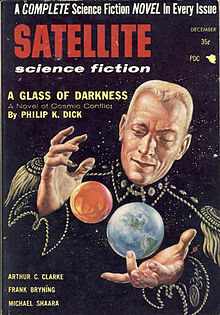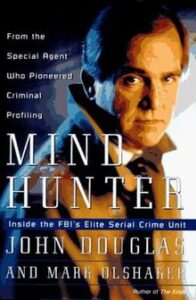Have you ever heard of Philip K. Dick?
Even if you aren’t familiar with the name, you are definitely familiar with his work. It would be impossible to not have heard of at least one of his stories over the past forty years or so. He wrote the story that Total Recall was based on. He wrote the Minority Report and the novel that inspired Blade Runner, as well as The Man in the High Castle. He wrote about alternate realities, the relationship between humans and machines, particularly androids and humans, and drug use.
He was an influential writer in the sense that he helped drive forward a sense of terror that had been a staple of science fiction before him. PKD was able to peer into the head of humans and ask the right questions: the ones that would have you sitting there pondering them days after finishing his work.
I think that’s the main drive for reading Dick. You read something that makes you question the fabric of reality, and you find yourself asking yourself what makes something normal. Is it appearance, or touch? What if those can be synthetic, but still feel real to a human? Does that in fact make the object real? Or alive?
Years before things like Alexa and Siri were even a thought, PKD was questioning the viability of humans interacting with machines on an android level. He summarizes his thoughts in his famous lecture, The Android and the Human, where he states that his main issue with Androids is that they attempt to trick humans into thinking they are one thing while being something else entirely. He states that he has fears that machines can hold an ulterior motive, which isn’t far from what happened once we let machines be more involved in our lives. Social Media, smart devices, artificial intelligence, and automation as a whole have made certain aspects of our lives easier while at the same time giving up our privacy and solitude. The ability to gather attention twenty-four hours a day has made it so that we wish to thrive in online communities, even if it means sacrificing our own health.
There are many layers to the things that Philip K. Dick wrote and spoke about. I liken it to the internet meme: the Iceberg. For those unfamiliar, an iceberg meme is where you have a picture of an iceberg, and then you have lines showing the different levels of it. Of course, you have the surface, which everyone can see. That symbolizes the commonly known information of the subject, or the “iceberg”. It can be as simple as the Beatles’ four names: John, Paul, Ringo, and George. Then, as you go lower, you start to get into the more obscure knowledge, which if we are sticking to the Beatles, you could say the lower levels would be something like Paul is Dead. Then, at the very bottom, you find the things that only a few, hardcore people in the fandom know about.
What is strange about PKD is that I find that the lower you go, not only the stuff he talked about gets even wackier, but it also at times makes you look at the world around you and think that maybe he does have some points about how we are living.
PKD was from Northern California. He wrote extensively on the way that organic material mixed with machines, and I think that was partially due to the landscape of California when he was growing up. You had farmland and green hills, mixed in with the industrialized cities and the people they brought in. Concrete mixed with green and brown. We accept these things now without a blink of an eye, but back then these developments were still relatively novel. It doesn’t come as a surprise that people would be cautious of giving their lives completely to machines.
Dick’s own anxiety played a huge part in his distrust. From a very early age, Philip explained he had episodes where he was filled with terror, and these issues would persist throughout his entire adult life. Dick was born a twin, alongside his sister Jane, six weeks premature. Jane passed six weeks after, and Dick would contest his entire life that it made a profound impact on him. He would write about a “phantom twin” repeatedly. It clearly hurt Dick in a way that he was never truly able to heal.
I believe these issues impacted Dick in a way that it would be possible for him to have mental breaks. He could see what he thought was the system’s inner workings. These beliefs pushed on him until one fateful day in February 1974.
While recovering from a wisdom tooth extraction, high off sodium pentothal, Dick answered the door to his home to receive a package of additional narcotics. He was greeted at the door by a young, Christian woman, with long dark hair. Around her neck was a gold chain, with a small symbol of a fish for a charm. When Dick inquired about the meaning of the symbol, she stated, “This is a sign used by the early Christians.” If you don’t know, the symbol was a way that Christians would communicate secretly with other members of their faith. One would make a curved line in the sand, and if the person they were communicating with drew the rest of the marking, which finished with a picture of a fish, then both of them knew that the other was a Christian, and they could talk freely without fear.
Once the words left the woman’s mouth, Dick stated he had a vision of what he assumed to be our true reality. He stated a pink beam left the woman’s chain and hit him directly on his forehead. From there, information was beamed into his brain, like a radio signal. He states that proof of this consists of his ability to diagnose his ill son, who was having stomach problems shortly after birth. The hallucinations and strange information persisted for weeks after the “pink beam” event, and it slowly began to convince Dick that the world we were living in wasn’t the only reality.
What he saw were visions of the Roman Empire. His visions would vary, but there were times he spent so long in Ancient Rome that he was able to gather that his name was Thomas, and he was a persecuted follower of Christ just after the crucifixion. These experiences were documented through interviews, lectures, and books. The visions and experiences took over Philip’s time, enough for him to even write an 8,000-page book, titled The Exegesis, which explored the visions even further.
What’s stunning to me is that while these ideas seem far-fetched and ridiculous, we accept our own “control mechanisms” which seem to trap us in our own strange realities. If you think of the people and experiences you are surrounded with, those typically shape your viewpoint and outlook towards the rest of the world. We are all subject to different mechanisms that drive our actions and ideals. We don’t realize it at the time, and some never see that aspect of life whatsoever. We are currently living in a controlled state where attention is now our greatest currency. In order to create a monopoly on this new market, companies have created small, microcomputers that everyone carries around in their pockets and gazes at for HOURS a day. We have accepted unfettered “screen time” because it’s entertaining and somewhat practical, but in the meantime, we have made it a new master to a large portion of our lives. If you told someone back in the 1970s that what we have today would be the future, they would look at you as if you told them that our “real” reality was 1 AD and we were being carted off to the lions for speaking about JC too loudly at the market. Because both at the time were equally plausible.
I hear older people constantly refer to shit as theirs. “My Alexa”, “My Siri,” or “My iPad,” but in actuality, these things don’t belong to us. This shit is a symbiotic relationship. We need our devices and they need us. We have crossed the Rubicon. Computers are no longer things that sit in the corner of your living room waiting for someone to use them. Online doesn’t exist anymore because everything is online. We live our life all day and then go home to stare at our phones to see what everyone else is doing in their day in a weirdly addictive fashion. I’m guilty of it myself. There are some days where I lay in bed after dinner and jump on TikTok or some other shit and then look at the clock and hours have slipped by like nothing. That’s a created reality just for us to get lost in. You don’t even need a pink beam to see that.
There’s an image that is presented online as well. There’s always a plastic sheen that covers everything. Everyone has their best features front and center. We take pictures that are flattering of ourselves and then present them to everyone. We do this for comfort and likes. But we must also realize that these things that are created in online spaces are just that, content for your time online. They can be significantly different from what is actually going on in the person’s real life.
Those realizations are what make you think that some of the stuff this Dick character was talking about seems to be not so out there as when you first dig into it. In fact, some of them hit incredibly close to home, especially today.
We have been convinced that these online spaces are real, and in fact, to some extent they are. There are people out there who can’t tell the difference between being online and being in reality. Some treat both equally the same. Just like Do Androids Dream of Electric Sheep, we have people who treat their online presence, i.e. their relationships with machines, with more regard than their actual lives. That’s a scary factoid.
That’s the problem with digging too deep with anything. You never know what’s under the surface. Maybe that’s the fun part about icebergs.



